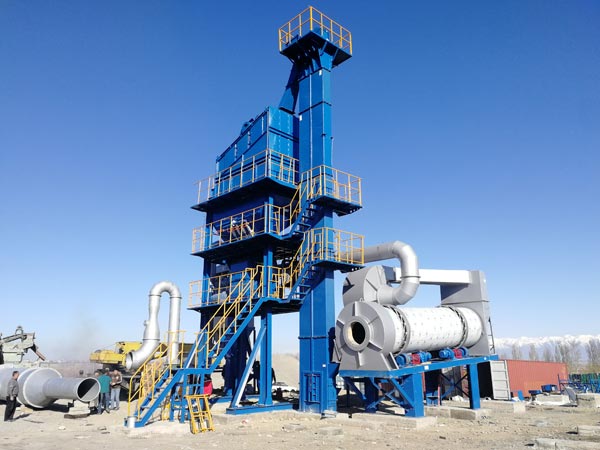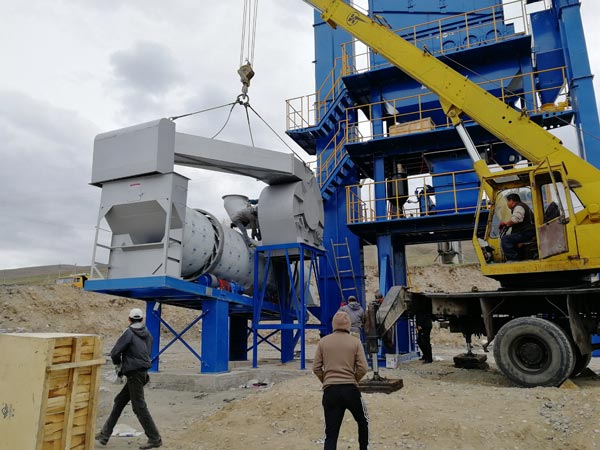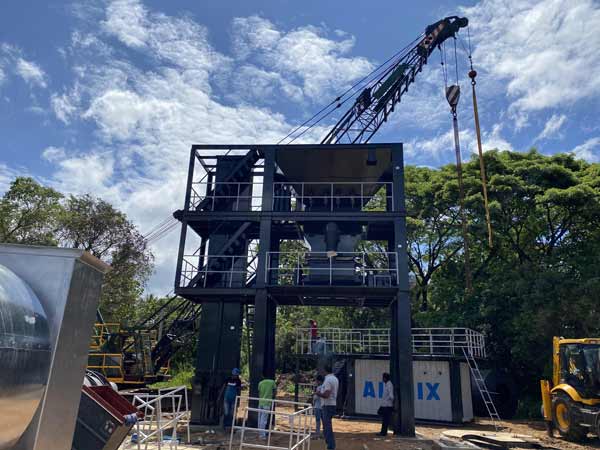When it comes to asphalt production, the performance of asphalt plants can vary significantly depending on the ground conditions in which they operate. Cold ground and hot ground conditions present unique challenges that can impact the efficiency and effectiveness of asphalt plants . Let’s explore the differences in performance under these contrasting conditions:

Cold Ground Conditions:
In colder climates, asphalt plants face several challenges. One key factor is the temperature sensitivity of asphalt mixtures. Cold ground conditions can lower the temperature of aggregates, affecting their workability and the overall production process. To counter this, asphalt plants operating in cold environments employ additional heating mechanisms and insulation measures to maintain optimal temperatures during production. To deal with these questions, AIMIX (Компания AIMIX GROUP CO., LTD) will give you some professional answers to help you solve the problem.
Hot Ground Conditions:
In hot climates, the performance of asphalt plants(Качественные Асфальтовые заводы из Китая для продажи) can be influenced by high temperatures. Excessive heat can accelerate the oxidation and aging of asphalt binders, leading to reduced durability and potential pavement distress. To mitigate these effects, asphalt plants in hot ground conditions often incorporate cooling systems and adjust production parameters to optimize the asphalt mix’s temperature during mixing and transportation.

Mix Design Modifications:
Asphalt plants operating under different ground conditions may require adjustments in mix design to ensure optimal performance. In cold ground conditions, modifications may involve using modified binders or additives to enhance flexibility and reduce the risk of cracking. In hot ground conditions, the mix design may focus on incorporating materials with higher resistance to rutting and improved temperature stability. If you have asphalt batching parameters modified, you can consult your asphalt plant supplier(AIMIX компания — крупный производитель и поставщик асфальтового завода), a good supplier will be able to give you the right answer.
Quality Control Measures:
Both cold and hot ground conditions require stringent quality control measures to ensure the produced asphalt meets the desired specifications. Asphalt plants employ advanced testing methods, such as temperature susceptibility tests and rheological analysis, to assess the performance characteristics of asphalt mixes under varying conditions. This allows for the fine-tuning of production processes and ensures the durability and longevity of asphalt pavements.

Maintenance and Operation Considerations:
The operating conditions of asphalt plants(Мини асфальтный завод из AIMIX GROUP) under cold and hot ground conditions can also impact maintenance and operation requirements. Cold ground conditions may necessitate additional insulation, heating, and winterization procedures to prevent equipment damage and ensure continuous production. In hot ground conditions, attention to cooling systems, regular maintenance of temperature control equipment, and monitoring of binder aging become crucial to maintain optimal plant performance.
Understanding the differences in performance of asphalt plants under cold and hot ground conditions is vital for optimizing production efficiency and the quality of asphalt mixtures. By implementing appropriate modifications, quality control measures, and maintenance practices, asphalt plants can overcome the challenges presented by varying ground conditions, ensuring the production of durable and resilient asphalt pavements in diverse environments.